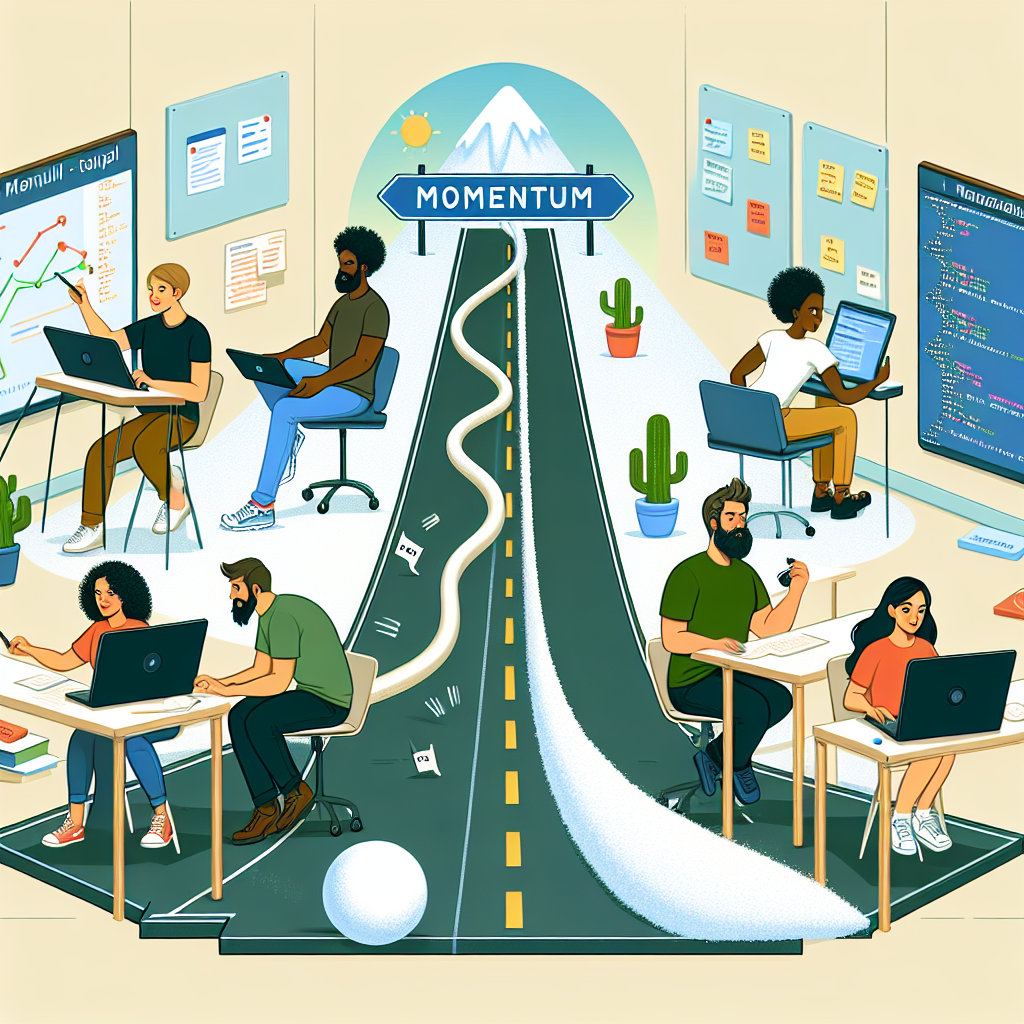Table of Contents
- Understanding Project Objectives
- Setting Milestones and Deadlines
- Effective Collaboration and Communication
- Regular Code Reviews and Feedback
What Are the Best Ways to Build Momentum in a Coding Project?
Understanding Project Objectives
When embarking on a coding project, the first thing that really kickstarts momentum is a solid understanding of the project’s objectives. I can’t stress how vital this is. It’s like knowing your destination before setting out on a road trip. Having clear goals helps align everyone’s efforts and keeps the team from veering off course.
Knowing the objectives ensures that you don’t get lost in the minutiae. It can be so easy to get distracted by minor details that seem important in the moment but don’t really contribute to the end goal. I’ve seen this happen too many times — and it’s a momentum killer. So, make sure every team member is on the same page.
It’s also about motivation. When people understand what they’re working towards, they’re more likely to feel engaged and driven. There’s nothing worse than feeling like you’re coding in a vacuum without knowing the bigger picture. Clear objectives keep things focused and purposeful.
Setting Milestones and Deadlines
Alright, once you’ve got your objectives sorted, the next step is setting milestones and deadlines. Think of it like plotting out pit stops on that road trip. Without them, it’s easy to lose track of time and even speed. Milestones give everyone a sense of achievement to work towards, which is crucial for maintaining momentum in any project.
<p Personally, I find breaking down larger projects into smaller, manageable chunks makes the process far less daunting. It’s like eating a massive pizza slice by slice. Each milestone achieved is a little celebration for the team, and it builds a rhythm that propels you forward.
Deadlines can be tricky if not handled appropriately, so it’s important to set realistic ones. Push too hard, and you’re looking at burnout; too lenient, and nothing gets done. Find that sweet spot that challenges but doesn’t overwhelm the team. It always works for me.
Effective Collaboration and Communication
No surprise here, but effective collaboration and communication are game-changers. I’ve been on projects that floundered because team members didn’t communicate or collaborate well. When everyone simply works in silos, it’s only a matter of time before the project stalls.
Clear communication channels ensure that everyone’s in the loop. This transparency prevents assumptions and misunderstandings that can drain the project of its energy. Using tools like Slack or Trello can be fantastic for keeping things organized and visible to all team members.
Collaboration fosters a sense of unity. When people feel they’re part of a team, with everyone’s contribution valued and recognized, momentum naturally builds. Organize regular team meetings and create a culture where ideas are freely exchanged — it’ll make a huge difference.
Regular Code Reviews and Feedback
Regular code reviews and feedback are absolute necessities. These aren’t just checkpoints to see how the project is progressing; they’re also opportunities for learning and improvement. It’s like going to the mechanic to make sure your car’s running smoothly during that road trip.
Reviews should be constructive, aimed at helping rather than hindering. I always remind my team that feedback is about growth, not criticism. Emphasizing this ensures everyone’s on the same page and maintains a positive, forward-moving energy. Also, it’s a great way to squash bugs early!
Moreover, frequent reviews allow for iterative improvements, ensuring the code’s quality remains high. It’s not just about moving fast, but moving fast with the reassurance that you’re building something solid and reliable. That, in turn, keeps spirits high and the project moving forward.
FAQ
1. Why is understanding project objectives important?
Understanding objectives is key because it provides clarity and direction. It ensures everyone knows what they’re working towards, which enhances motivation and focus.
2. How can setting milestones boost project momentum?
Milestones break the larger project into smaller goals, making it less intimidating. They provide a sense of achievement and rhythm, driving the team forward with each step achieved.
3. What role does effective communication play in a project?
Effective communication prevents misunderstandings and keeps everyone informed. It also promotes collaboration, which is necessary for team unity and sustained momentum.
4. How does regular code review impact a project?
Regular code reviews improve code quality by identifying issues early. They also provide opportunities for learning and ensure the project progresses smoothly.
